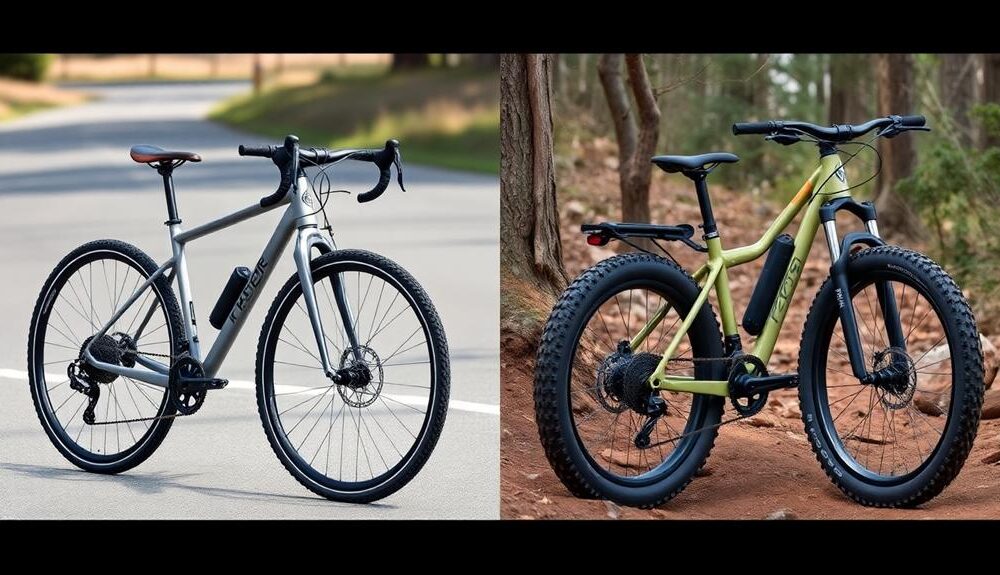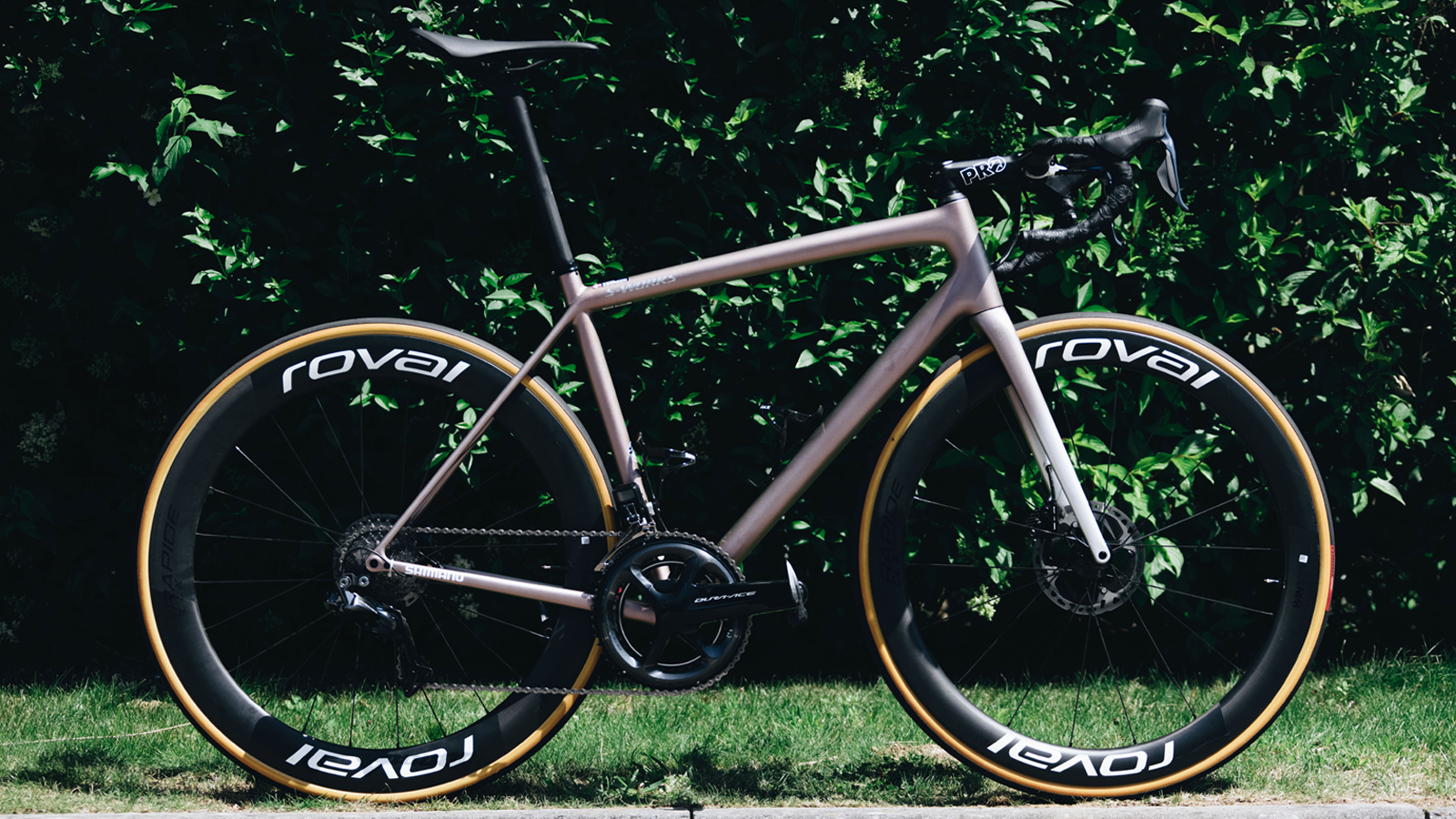Wonderful Info About Why Are Lighter Bikes More Expensive

The Featherweight Question
1. Materials Matter
Ever wondered why some bikes feel like you're pedaling clouds while others feel like, well, you're pedaling actual clouds made of lead? The answer often lies in the materials. It's like comparing a suit tailored from the finest Italian wool to one from, let's just say, a less prestigious source. Lighter bikes typically use advanced materials such as carbon fiber, titanium, or high-end aluminum alloys. These materials offer a superior strength-to-weight ratio compared to their heavier counterparts like steel or entry-level aluminum. Think of it as the difference between building a house with sturdy, lightweight I-beams versus traditional wood. The I-beams are stronger and lighter, but they come at a cost.
Carbon fiber, for example, is incredibly strong and light, but manufacturing it is a complex and expensive process. It involves layering sheets of carbon fiber fabric and bonding them together with resin under immense pressure and heat. This requires specialized equipment and skilled labor. Titanium, another lightweight champ, is also notoriously difficult to work with, driving up the price. High-end aluminum alloys undergo intricate heat-treating processes to enhance their strength and reduce weight, adding to the cost. The materials themselves are more expensive to acquire, and the manufacturing processes needed to shape them into bike frames are complex and resource-intensive.
Think of it this way: youre not just paying for the raw materials; youre paying for the engineering, the research and development, and the expertise that goes into creating a frame that's both incredibly light and incredibly strong. It's a delicate balancing act. A lighter bike that cracks under pressure is no bargain at any price! So, when you see that hefty price tag on a featherweight frame, remember you are investing in advanced material technology.
It's a similar principle to high-performance cars. They use lightweight materials like carbon fiber and aluminum extensively to improve performance and fuel efficiency. The same logic applies to bikes. Reduced weight translates into improved acceleration, easier climbing, and enhanced overall handling. The difference is that in bikes, you are the engine. Having a lighter machine under you allows you to climb faster and ride easier. If money isn't an object, always go for the lightest bike that will fit your riding style and budget.

How Bike Weight Affects Your Ride The Pros And Cons Of Lighter Bikes
Craftsmanship and Engineering
2. Precision in Every Pedal Stroke
It's not just about fancy materials, though. The design and engineering of a lightweight bike frame are crucial factors that contribute to its cost. Creating a frame that is both light and structurally sound requires meticulous design, precise manufacturing, and rigorous testing. Its like the difference between a hand-built race car engine and something churned out on a mass production line. The hand-built engine will likely be more powerful and more reliable because of the individual attention given to its creation.
Lightweight bikes often feature intricate frame designs that optimize stiffness and aerodynamics while minimizing weight. These designs are often developed using advanced computer modeling and wind tunnel testing, which is a costly undertaking. The manufacturing process also requires tight tolerances and precise welding or bonding techniques. Imperfections can compromise the frame's structural integrity, making it heavier or weaker. This is why you see a lot of robotic welding in high end bikes. Consistency of quality is key.
Furthermore, the components used on lighter bikes are often of higher quality and lower weight. Think of things like carbon fiber wheels, lightweight handlebars and stems, and precision-engineered drivetrain components. These components contribute significantly to the overall weight reduction, but they also come with a higher price tag. Each gram saved adds to the overall cost of the bike. A gram here, a gram there, pretty soon you are talking real money.
The overall geometry of the bike contributes to the feel of the bike. Is it meant for comfort, racing, endurance? All of this contributes to the cost of engineering the bike. It's not just about making something light, but making it handle well and last. You want the best riding experience possible and that translates to the design and build quality.

The Performance Payoff
3. Uphill Domination and Beyond
So, why go to all this expense for a lighter bike? The answer is simple: performance. A lighter bike accelerates faster, climbs hills more easily, and handles with greater agility. It can make a significant difference in your overall riding experience, especially on challenging terrain or during long rides. Imagine carrying a backpack filled with bricks versus carrying an empty backpack. The difference is palpable, especially after a few hours.
For competitive cyclists, the weight of their bike can be the difference between winning and losing. Every gram counts when you're battling for position in a race. But even for recreational riders, a lighter bike can make cycling more enjoyable and less strenuous. It allows you to ride farther, climb steeper hills, and feel less fatigued at the end of a ride. This can translate into greater motivation to ride more often and achieve your fitness goals.
Think about it this way: a lighter bike is like having a superpower. It allows you to overcome challenges that might have seemed insurmountable on a heavier bike. It's an investment in your performance, your enjoyment, and your overall health. It can make all the difference between hating hills and enjoying the experience of conquering them.
A lighter bike will give you more power in every aspect. You will ride faster, and you will accelerate with more ease. Plus, you will feel less fatigued after long rides. Its not just about speed; it's about comfort and enjoyment. So, if you are serious about cycling, a lighter bike is a great investment.— you won't regret it.

Road Bike Weight How Much Better Are Lighter Bikes The Pro's Closet
The Law of Diminishing Returns
4. When Ounces Become Obscene
There's a point where chasing ultimate lightness becomes an exercise in diminishing returns. As you get closer to the absolute minimum weight, the cost per gram saved increases exponentially. You might be spending hundreds of dollars to shave off just a few grams. At that point, it's worth asking yourself if the performance gain is truly worth the expense. It's like trying to squeeze the last drop of water out of a dry sponge. You might get a tiny bit more, but you're putting in a lot of effort for very little reward.
Furthermore, ultra-lightweight components can sometimes be less durable than their heavier counterparts. You might be sacrificing reliability and longevity for the sake of a few grams. It's important to strike a balance between weight, performance, and durability. After all, a bike that spends more time in the repair shop than on the road isn't much use. It is important to remember that you still need to have a reliable bike in the end. A bike isn't fun if you have to work on it instead of ride it!
Consider your riding style and terrain. If you're primarily riding on smooth roads, then you might be able to get away with a more fragile, ultra-lightweight bike. But if you're riding on rough roads or off-road trails, you'll need a bike that can withstand more abuse. It's like choosing a car for different driving conditions. A sports car might be great for racing on a track, but it's not the best choice for driving on bumpy dirt roads.
Ultimately, the ideal weight for your bike depends on your individual needs and preferences. Don't get caught up in the hype of chasing the absolute lightest bike possible. Focus on finding a bike that is light enough to enhance your performance but durable enough to withstand your riding style and terrain. The right bike is one that you will ride regularly and consistently.

Budget Considerations
5. Smart Spending for Speed
So, how do you get the most bang for your buck when it comes to lightweight bikes? The first step is to set a realistic budget and prioritize the components that will make the biggest difference. For example, upgrading to a lighter wheelset can have a significant impact on your bike's overall performance. It's often a better investment than upgrading to a slightly lighter groupset. Think of it as upgrading the tires on your car. New, high-performance tires can dramatically improve handling and performance, even if the rest of the car remains the same.
Consider buying a used bike or frame. You can often find great deals on high-quality bikes that are a few years old. Just be sure to inspect the bike carefully for any signs of damage or wear. Buying used is a great way to save money if you are on a tight budget. The key is to find a bike that has been taken care of. Don't be afraid to ask questions!
Look for sales and discounts. Bike shops often have end-of-season sales where you can find significant discounts on bikes and components. Signing up for email newsletters from bike shops and online retailers can help you stay informed about upcoming sales. Patience is key. You never know when a good deal will pop up.
Finally, don't be afraid to negotiate. Bike shop owners are often willing to negotiate on price, especially if you're buying multiple items or paying in cash. It never hurts to ask! Remember, the goal is to find a bike that meets your needs and budget without breaking the bank. With a little research and effort, you can find a great deal on a lightweight bike that will enhance your riding experience.
